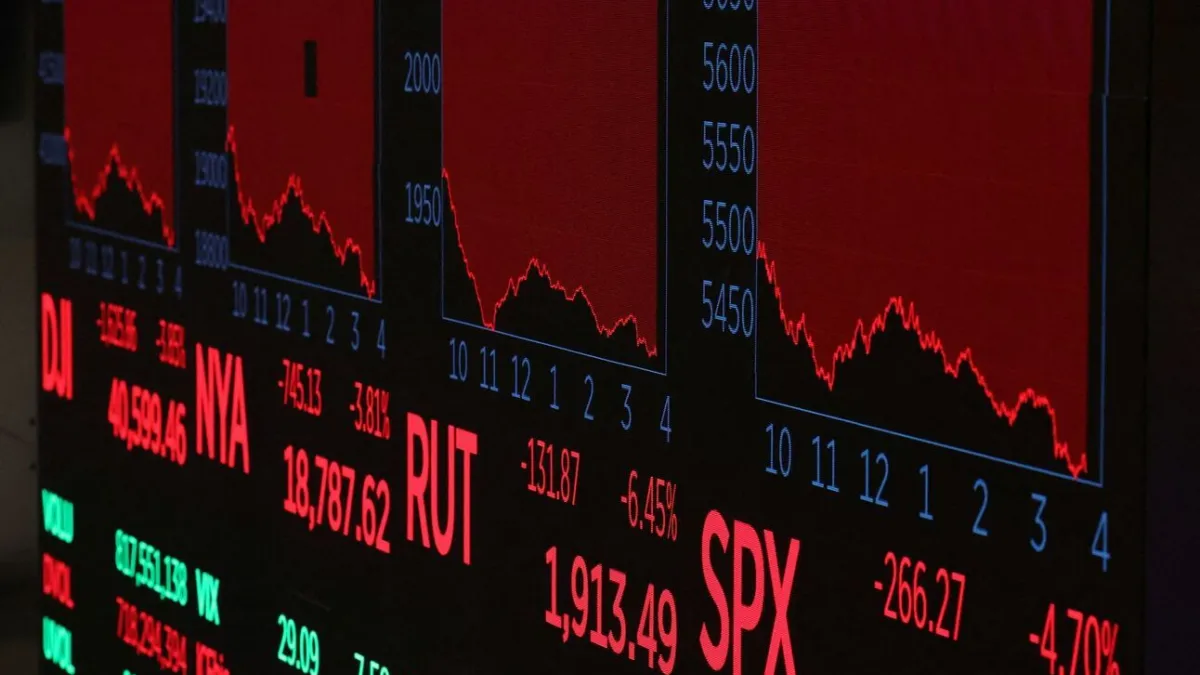
The trade war started by President Donald Trump’s imposition of new tariffs on countries around the world sent stocks on another rollercoaster ride Monday, with the Dow Jones Industrial Average dropping 349 points, or 0.9%, and the S&P 500 falling 11 points, or 0.23%. Stocks swung dramatically throughout the day, with the S&P down 4.7% at one point and the Dow recording a record intraday move of 2,595 points from low to high, as investors speculated on the future of Trump’s tariff program.
Rumors about a possible 90-day pause in the tariffs, first suggested by investor and Trump supporter Bill Ackman, briefly gave traders hope that the trade war may ease, but the White House dismissed the notion as “fake news.” Instead of retreating or pausing, Trump doubled down, threatening to slap another 50% tariff on Chinese imports in response to retaliatory tariffs announced by China last week.
“If China does not withdraw its 34% increase above their already long term trading abuses by tomorrow, April 8th, 2025, the United States will impose ADDITIONAL tariffs on China of 50%, effective April 9th,” Trump said on his social media platform. “Additionally, all talks with China concerning their requested meetings with us will be terminated!”
Wall Street worried: Investors are expressing growing concern about the Trump tariff war. Larry Fink, the CEO of investment giant BlackRock, said Monday that CEOs of major companies suspect that the U.S. economy has already entered a downturn.
“Most CEOs I talk to would say we are probably in a recession right now,” Fink said at the Economic Club of New York. “One CEO specifically said the airline industry is a proverbial bird in a coal mine — canary in the coal mine — and I was told that the canary is sick already.”
In his annual letter to shareholders, JPMorgan Chase’s CEO Jamie Dimon said that Trump’s tariff policies threaten to harm the U.S. economy in both the short and long term. “The recent tariffs will likely increase inflation and are causing many to consider a greater probability of a recession,” Dimon wrote. In the longer run, “If America, for whatever reason, becomes a less attractive investment destination, the U.S. dollar and the economy could suffer if foreigners sold their U.S. assets,” he added.
Dimon also expressed concern that U.S. trading partners could turn to China or Russia in response to Trump’s actions. “America First is fine,” he wrote, “as long as it doesn’t end up being America alone.”
Meanwhile, economists at Goldman Sachs lowered their growth outlook and raised the odds of a recession possibly occurring over the next 12 months.
“We are lowering our 2025 Q4/Q4 GDP growth forecast to 0.5% and raising our 12-month recession probability from 35% to 45% following a sharp tightening in financial conditions, foreign consumer boycotts, and a continued spike in policy uncertainty that is likely to depress capital spending by more than we had previously assumed,” the Goldman economics research team wrote in a note titled “Countdown to Recession,” released Sunday.
The Goldman outlook assumes the tariffs that are scheduled to take effect on April 9 will raise the overall U.S. tariff rate by 15 percentage points. However, the tariffs could push the level up 20 points, and if they do so, as currently scheduled, “we expect to change our forecast to a recession,” the analysts wrote.